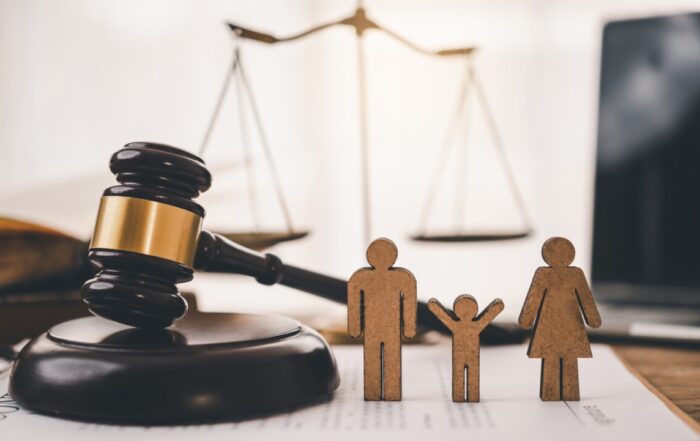How Do You Know If You Have a Legal Case?
Ready to resolve your legal concerns? Get professional help now with personalized support, Or Call 833-349-4659 for immediate assistance.
Understanding whether you have a legal case is crucial for anyone facing potential legal issues. Knowing the answer to the question, “Do I Have A Case?” can help you take the necessary steps to protect your rights and interests. It can also guide you in deciding whether to consult a lawyer or pursue a lawsuit.
Key Indicators of a Legal Case
When evaluating your situation, consider these key indicators:
- Injury or Damage: Have you suffered a physical, emotional, or financial injury?
- Negligence: Was someone else responsible for your injury or damage?
- Legal Grounds: Do you have a valid legal claim based on laws or regulations?
How To Find Case Details
To determine if you have a lawsuit, gather relevant information:
- Document Everything: Keep records of events, communications, and any evidence.
- Consult Legal Resources: Research online or visit local legal aid offices for guidance.
- Speak to a Lawyer: A legal professional can provide clarity on your situation and help answer, “Do I Have A Lawsuit?”
Key Indicators That You Might Have a Legal Case
Understanding whether you have a legal case is crucial for protecting your rights and interests. Many people wonder, “Do I have a case?” This question often arises after experiencing an incident that may have caused harm or loss. Knowing the key indicators can help you determine if pursuing legal action is the right step for you.
Evidence of Wrongdoing
If you believe someone has acted unlawfully or negligently, it could indicate a potential case. Look for clear evidence, such as documents, photos, or witness statements that support your claim.
Damages Incurred
Consider whether you have suffered damages, such as medical bills, lost wages, or emotional distress. If you can quantify these losses, it strengthens your position when asking, “Do I have a lawsuit?”
Timeliness of Your Claim
Legal cases often have time limits, known as statutes of limitations. If you suspect you have a case, it’s essential to act quickly to gather information on how to find case details and ensure you don’t miss any deadlines.
Common Types of Legal Cases: What You Should Know
Understanding whether you have a legal case is crucial for protecting your rights. Many people wonder, “Do I have a case?” This question often arises after experiencing an incident that may warrant legal action. Knowing the common types of legal cases can help you determine if pursuing a lawsuit is the right path for you.
Personal Injury Cases
Personal injury cases arise when someone suffers harm due to another’s negligence. This includes car accidents, slip and falls, and medical malpractice. If you find yourself injured and believe someone else is at fault, you might ask, “Do I have a lawsuit?”
Contract Disputes
Contract disputes occur when one party fails to fulfill their obligations under a contract. If you’re facing issues with a service or product, understanding how to find case details related to your situation can clarify your options.
Evaluating Your Situation: Questions to Ask Yourself
Understanding whether you have a legal case is crucial for anyone facing potential legal issues. Knowing the answer to the question, “Do I have a case?” can save you time, money, and emotional stress. Evaluating your situation involves asking the right questions and gathering necessary information to determine if pursuing legal action is warranted.
Key Questions to Consider
- What happened? Reflect on the events leading to your situation. Documenting the details can help clarify your case.
- Who is involved? Identify all parties involved, including witnesses, as their testimonies may be vital.
- What damages have you suffered? Consider both physical and emotional damages, as well as financial losses. This will help you understand if you have a lawsuit worth pursuing.
How to Find Case Details
To assess your situation effectively, gather relevant documents and evidence. This may include:
- Contracts or agreements
- Medical records
- Correspondence related to the incident
- Photographs or videos Once you have this information, you can better answer the question, “Do I have a lawsuit?” and decide on your next steps.
The Importance of Evidence in Determining Your Case
Understanding whether you have a legal case is crucial for protecting your rights and interests. The question, “Do I have a case?” often arises when individuals face disputes or injuries. The foundation of any legal claim lies in the evidence you can gather, which plays a significant role in determining the strength of your case.
Key Factors to Consider
- Documentation: Collect all relevant documents, such as contracts, emails, and medical records.
- Witnesses: Identify any witnesses who can support your claims.
- Timeline: Establish a clear timeline of events to provide context.
These elements help answer the question, “Do I have a lawsuit?” and guide you in understanding your legal standing. Without sufficient evidence, it can be challenging to pursue a case effectively. In addition to gathering evidence, knowing how to find case details is essential. Researching similar cases can provide insight into potential outcomes and legal precedents. Consulting with a legal professional can also clarify your situation and help you navigate the complexities of the law.
Consulting a Lawyer: When Should You Seek Help?
Determining whether you have a legal case can be daunting. Understanding your rights and the potential for a lawsuit is crucial. Consulting a lawyer is often the best way to clarify your situation and assess whether you have a valid claim. So, when should you seek help?
Signs You May Have a Case
- You have suffered damages or injuries.
- There is evidence of negligence or wrongdoing.
- You have incurred financial losses due to someone else’s actions.
If you find yourself in any of these situations, it may be time to ask yourself, “Do I have a case?”
How to Find Case Details
To determine if you have a lawsuit, gather all relevant information:
- Document your injuries or losses.
- Collect evidence such as photos, witness statements, and medical records.
- Research similar cases to understand potential outcomes.
This information will help your lawyer evaluate your situation effectively.
How to Gather Evidence for Your Potential Case
Understanding whether you have a legal case is crucial for protecting your rights. If you’re asking yourself, “Do I have a case?” it’s essential to gather evidence that supports your potential claim. This process not only clarifies your situation but also strengthens your position should you decide to pursue legal action.
Document Everything
- Keep Records: Maintain detailed records of events, including dates, times, and locations.
- Collect Correspondence: Save emails, texts, and any communication related to your case.
Identify Witnesses
- List Potential Witnesses: Think about individuals who may have seen or heard relevant events.
- Gather Statements: If possible, ask them to provide written statements to support your case.
Research Relevant Laws
- Understand Applicable Laws: Research laws that pertain to your situation to determine if you have a lawsuit.
- Consult Legal Resources: Use online legal databases or consult with a lawyer for guidance on how to find case details.
Ready to resolve your legal concerns? Get professional help now with personalized support, Or Call 833-349-4659 for immediate assistance.
What to Expect During a Legal Consultation
Understanding whether you have a legal case is crucial for protecting your rights. During a legal consultation, you can gain insights into your situation and determine if you should pursue action. Knowing how to navigate this process can empower you to make informed decisions about your future.
Initial Assessment
Your attorney will begin by asking questions to assess your situation. This is where you can express your concerns and ask, “Do I have a case?” Be prepared to share all relevant details, as this information is vital for evaluating your potential legal standing.
Gathering Case Details
To help you understand if you have a lawsuit, your lawyer will gather essential case details. This may include:
- Documents: Contracts, emails, or any written communication related to your issue.
- Witnesses: Names and contact information of individuals who can support your claims.
- Timeline: A chronological overview of events leading to your situation.
Read Also: How Can You Look Up Case Details Online? A Complete Guide
How FormsByLawyers Can Help You Assess Your Legal Options
Understanding whether you have a legal case is crucial for anyone facing potential legal issues. It can be daunting to navigate the complexities of the law, but knowing your options can empower you. At FormsByLawyers, we specialize in helping individuals assess their legal situations and determine if they should pursue a lawsuit. Our goal is to provide clarity and guidance in this often confusing process.
When you ask yourself, “Do I have a case?” it’s essential to evaluate the specifics of your situation. Here’s how we can assist you:
- Initial Consultation: We offer a free consultation to discuss your circumstances.
- Case Evaluation: Our team will analyze the details to determine if you have a valid claim.
- Legal Resources: We provide access to resources that help you understand your rights and options.
Key Considerations
To find case details, consider the following:
- Evidence: Gather any documentation or proof related to your situation.
- Timeline: Understand the timeline of events leading to your potential case.
- Legal Standards: Familiarize yourself with the legal standards relevant to your issue. If you’re still wondering, “Do I have a lawsuit?” our experts are here to help clarify your path forward.
Next Steps: Moving Forward If You Have a Case
Understanding whether you have a legal case is crucial for anyone facing potential legal issues. Knowing the answer to the question, “Do I Have A Case?” can help you take the right steps forward. If you believe you have a valid claim, it’s essential to assess the situation thoroughly before proceeding.
Evaluate Your Situation
Start by gathering all relevant information about your situation. Consider the following:
- Incident Details: What happened, and when?
- Involved Parties: Who else was involved?
- Evidence: Do you have documents, photos, or witness statements?
Consult a Legal Professional
Once you have your details organized, it’s time to consult a lawyer. They can help you answer, “Do I Have A Lawsuit?” and guide you through the legal process. A professional can provide insights on how to find case details and assess the strength of your claim.
Consider Your Options
If you have a case, explore your options:
- Negotiation: Sometimes, a settlement can be reached without going to court.
- Filing a Lawsuit: If necessary, your lawyer can help you file a lawsuit and represent you in court.
Taking these steps will ensure you are well-prepared to move forward with your legal journey.
Don’t let legal complexities hold you back. Start your free consultation here or call 833-349-4659 now.
You can also visit LegalCaseReview to find the best Lawyer.
FAQs
-
How do I know if I have a valid legal case?
A legal case typically requires evidence of wrongdoing, damages, and legal grounds for a claim. Consulting with a lawyer can help determine the strength of your case. -
What types of legal cases can I file?
Common legal cases include personal injury, medical malpractice, employment disputes, contract breaches, family law matters, and criminal defense cases. -
What evidence do I need to prove my case?
Evidence varies by case type but may include witness statements, medical records, contracts, emails, photographs, videos, and expert testimony. -
How long do I have to file a lawsuit?
The time limit, called the statute of limitations, varies depending on the type of case and your location. It can range from a few months to several years. -
Do I need a lawyer to determine if I have a case?
While you can research your legal rights, an experienced lawyer can assess your case, explain your options, and guide you through the legal process.





